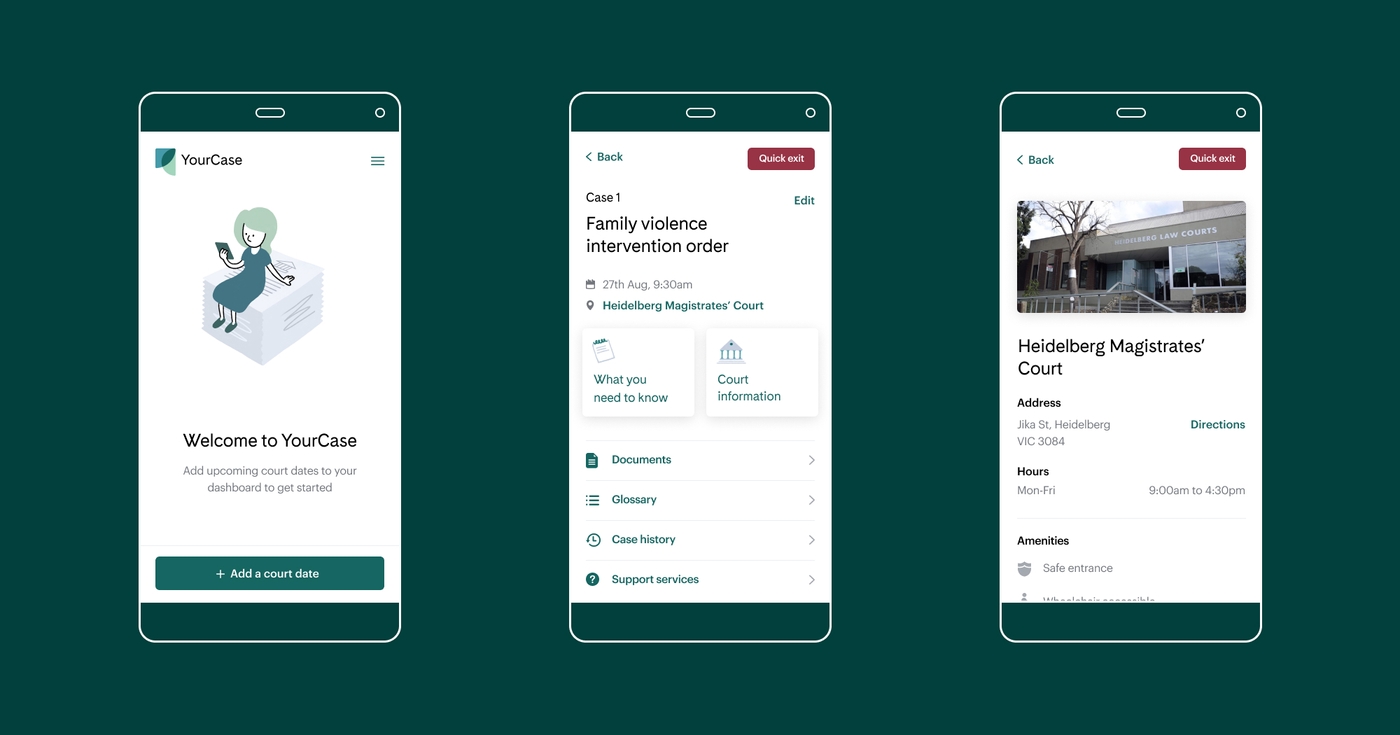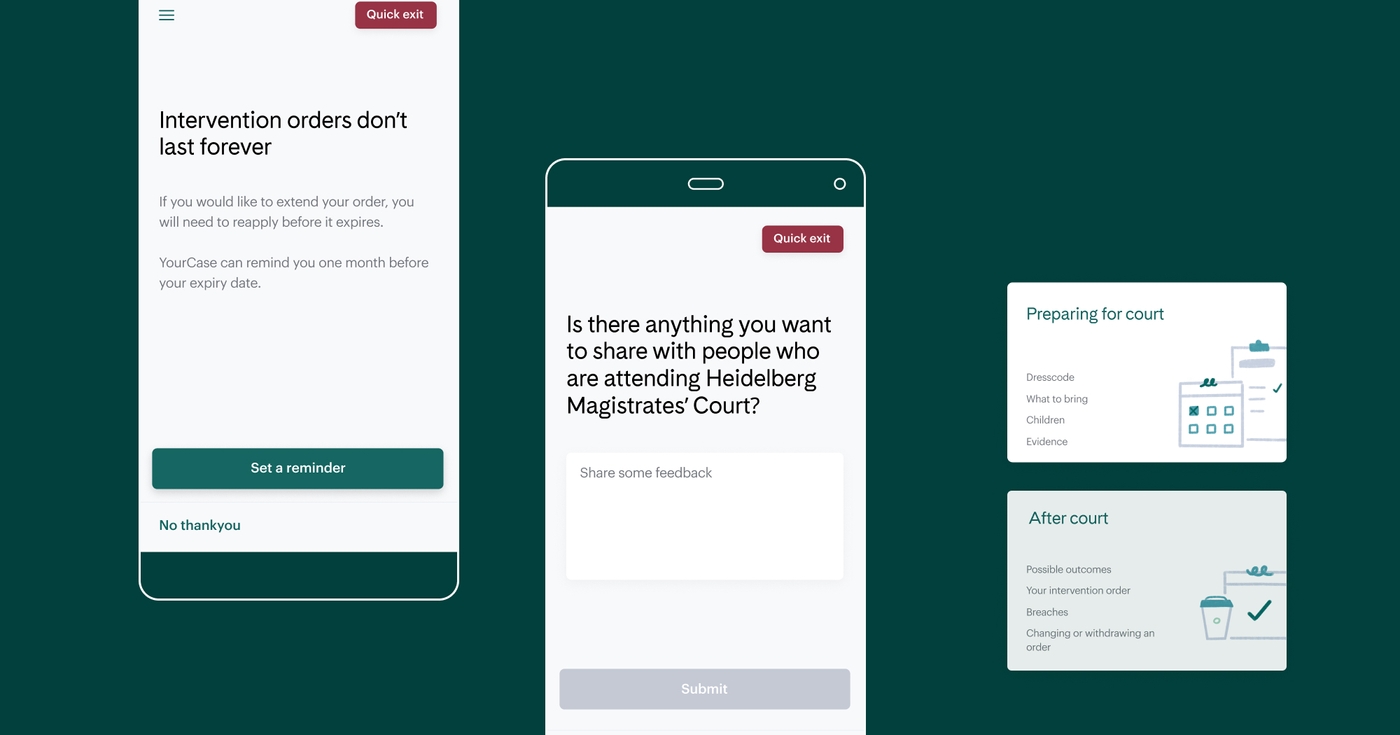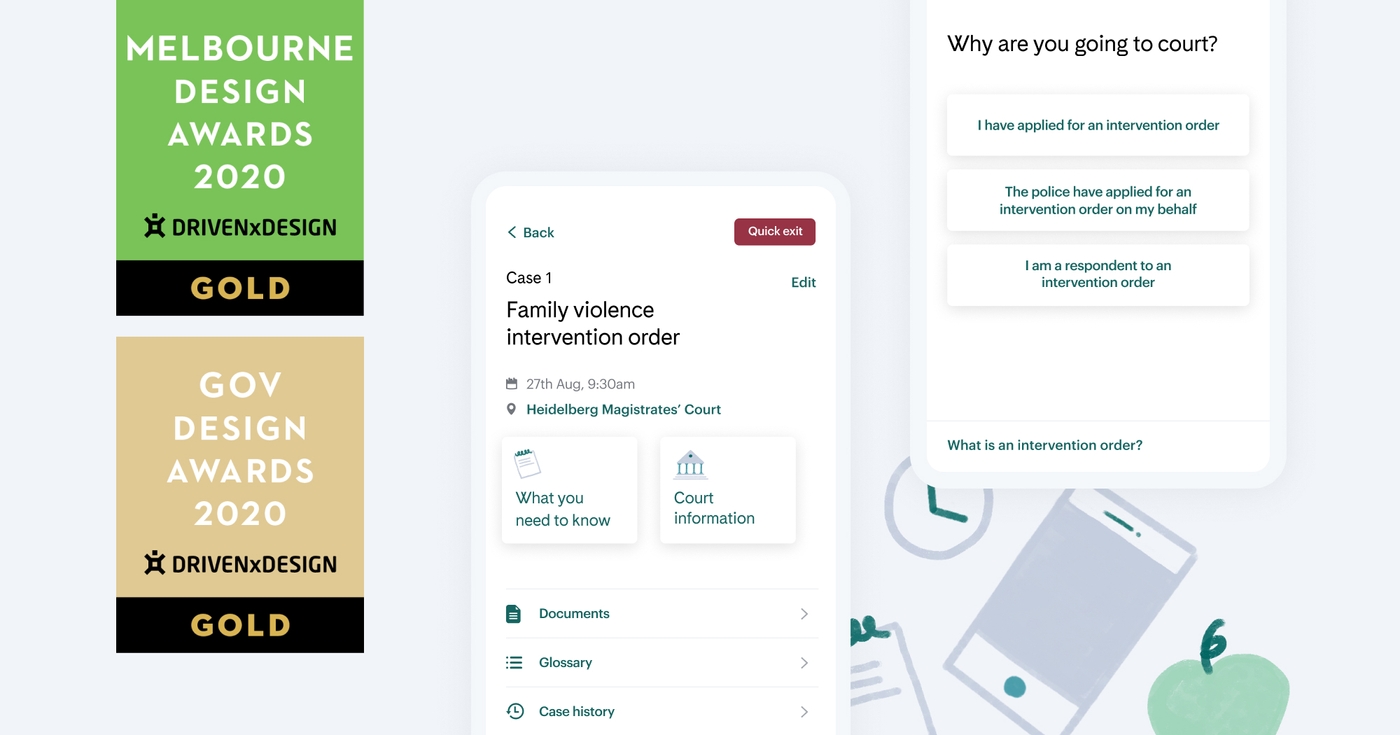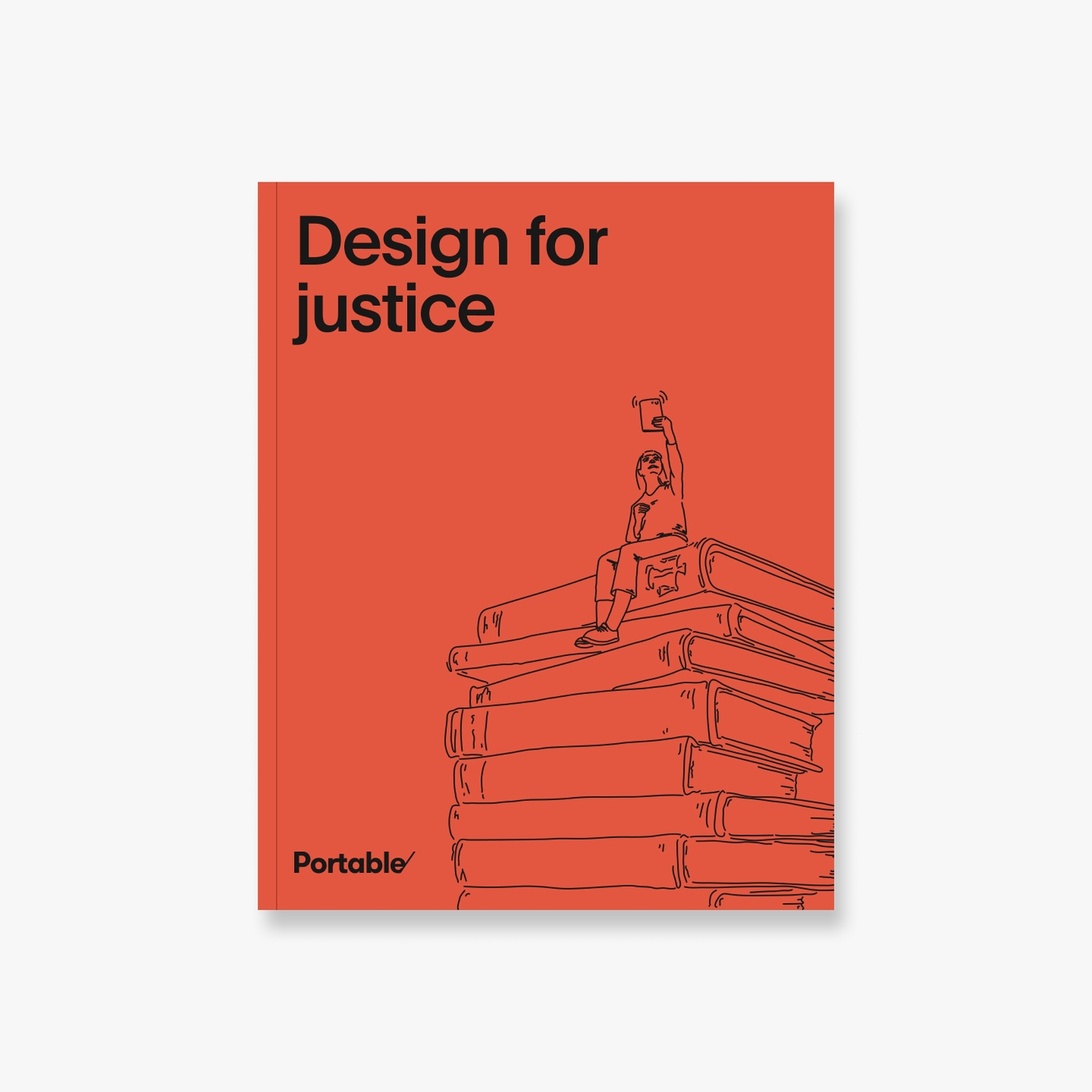
Launched in 2020, YourCase is an online tool to help victim-survivors of family violence prepare for court. It provides clear and accessible information about every stage of the court journey. It’s simple, secure and free to use. As a team, we keenly observed recommendations coming out of the Victorian Royal Commission into Family Violence, particularly those relating to technology and the court experience for victim-survivors. One of its key recommendations led us to question how we might, as designers, empower victim-survivors and minimise further trauma in the lead-up to their day in court and beyond.
YourCase doesn’t aim to change the court system itself, and it can't impact the outcome of cases, but it can give victim-survivors the knowledge they need for a better experience, one in which they are more informed, in control and feel better about their day in court. That’s our mission.
Approach
We were supported in this vision by the Public Sector Innovation Fund, which saw YourCase as a way of bridging the experience across service providers. This proved to be the spark that helped pull together a coalition of partners to start exploring the problems and possible solutions.
The terms ‘human-centered’ and ‘justice experience’ were new concepts at the time, so we had to create a framework for our partners to work together in a safe but experimental way. As a result we created a dedicated project space at Portable and established a weekly workshop environment that brought our partners together to conduct research, user testing and to design possible solutions.
Of critical importance, we had a victim-survivor join our design team who had lived experience to draw from, and this helped ensure we were always viewing processes, operations, opinions and insights through the perspective of the people who would be using our product.
Over a six month period, this process brought together:
- Police prosecutors to understand how victim-survivors intersect with police throughout their journey
- Victorian Legal Aid case workers, to identify the issues that their clients were experiencing within the court system
- Registry staff from Victorian courts in order to get a sense of system issues that lie beneath the user experience of family violence applicants and respondents
- Case-workers from Berry Street, to understand how referrals were taking place between their service and the Heidelberg Magistrates Court
- A court Magistrate and their support staff to explore the experience from an administrative perspective
- Members of staff from Safe Steps who took us through the referral process
- Other victim-survivors with lived experience so we could understand their experiences and to test our prototypes with users
Along with this we also conducted:
- Site visits to specialist family violence courts as well as magistrates courts in both city and regional settings
- Site visits and in-depth systems analysis of the Victorian Civil and Administrative Tribunal (VCAT) to determine how victim-survivors might navigate across multiple hearings, i.e. evictions
- Site visits, systems analysis, contextual observation and interviews at the Federal Family Court, working in conjunction with the Family Advocacy and Support Services (FASS) team at Victorian Legal Aid
- Explorations into the juvenile justice system and Children’s Court to explore the impact of the family violence experience on children
- Workshops to articulate user needs, create user personas and define areas of opportunity
- A comprehensive literature review of existing work in the sector to gather insights and to ensure that no duplication occurred
Through this process we created multiple prototypes of varying fidelity to test our assumptions on a range of participants. Starting out with a paper prototype, we gradually increased the fidelity into a series of clickable, high-fidelity wireframes, which we shared with the design group, as well as with the Victim Survivors Advisory Council, chaired by advocate Rosie Batty and Family Violence Command at Victoria Police.
Working with our evaluation partners and Victoria Police we identified the scope of YourCase pilot and put together a pilot plan. We engaged with police stations in two areas: Heidelberg and Ballarat. This included the creation of referral tools including posters and cards that could be handed out by members of police to the affected family members they interacted with during the pilot period.
Outcomes
In February 2020, we formally launched YourCase to the public at Portable headquarters in Collingwood. The resulting product, while limited in scope featured the following features:
- An accessible web app on mobile and desktop
- The ability to enter upcoming court hearings and events directly into the app
- Educational information and plain language related to specific court experiences, i.e. courts in Ballarat and Heidelberg
- Text messages and notifications to alert victim-survivors to upcoming matters and to outline how they can prepare for them
- The ability to upload, save and store important documents and information throughout the court journey, such as business cards and photos of intervention orders
- Reminder notifications at the expiry of intervention orders

Benefits
YourCase provides measurable benefits to citizens, court staff, courts and governments by utilising a human-centred approach to design.
- It is a digital solution: there is currently no digital solution to let citizens know what is happening to them at any moment in time.
- It is minimum and viable: YourCase doesn’t replace whole systems, instead we use a series of small releases and iterate on each one.
- It uses agile methodology: through planning work in a series of sprints with a clear understanding at the outset of what we’re going to achieve across design and development.
- It was co-designed with real users: every court is unique and we worked with real users to tailor the solution to their needs.
- It is citizen-centred: the citizens are the most important users.
- It is data-driven: everything is validated with data and changes made to enhance engagement.
Evaluation
This pilot was recently evaluated by the Sir Zelman Cowen Centre at Victoria University. The evaluation report found that all YourCase objectives have been achieved, or are on track to being achieved, and that YourCase’s design and the results of the pilot phase provide useful learnings for developing similar tools to support access to justice for vulnerable users in other jurisdictions.
Beyond the current pilots for family violence cases, we know YourCase can be expanded and applied to many other cases. Empowering citizens with knowledge can be beneficial in countless scenarios, and Portable looks forward to discovering YourCase’s potential for more users in more and different jurisdictions.
Below is an interview with Nicole Lee, who helped to design YourCase from a victim-survivors’ perspective, talking about her involvement with the project, the value YourCase has for victim-survivors, and the difference that it can make. Nicole was also interviewed by Radio National’s Patricia Karvelas when the YourCase pilot launched in 2020.
YourCase has since been awarded two gold awards at the 2020 Melbourne Design Awards and the 2020 GOV Design Awards.
DrivenxDesign have awarded YourCase gold in the category of 'Service-Community' at the 2020 Melbourne Design Awards which "celebrates creative and innovative solution design for the successful delivery and provision of services. Consideration given to system integration, user experience, product design.”
YourCase was also awarded gold in the category of 'Best Expanded Service or Application' at the 2020 GOV Design Awards which recognises "true innovation that exceeds expectations and fills a previously unmet need with updates and developments that truly enhance the user experience and take your app or service to another level.”
We are delighted that our work in bringing digital, user-centred design to the justice sector has been recognised in this way and we'd like to thank all of those involved in the project and setting it up for success. We hope that it continues to expand and provide much-needed support to victim-survivors preparing for and attending court.

If, like us, you see the potential of YourCase to be expanded and applied to many other cases we want to hear from you.
Downloading our report in designing for justice
